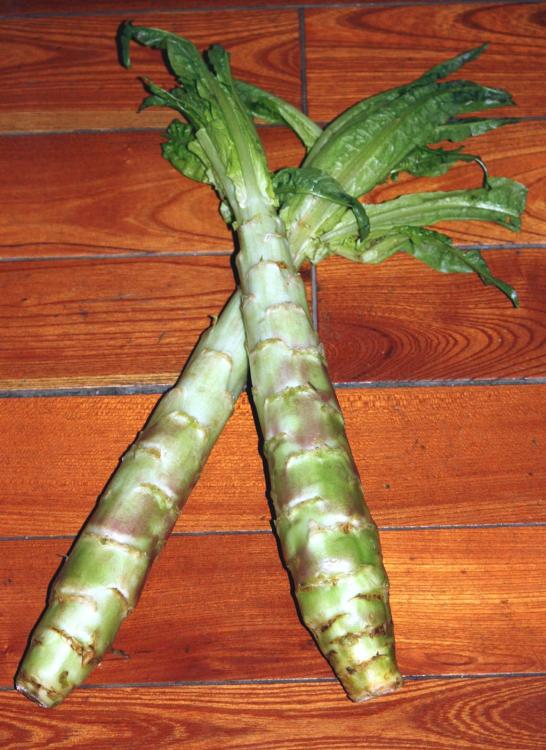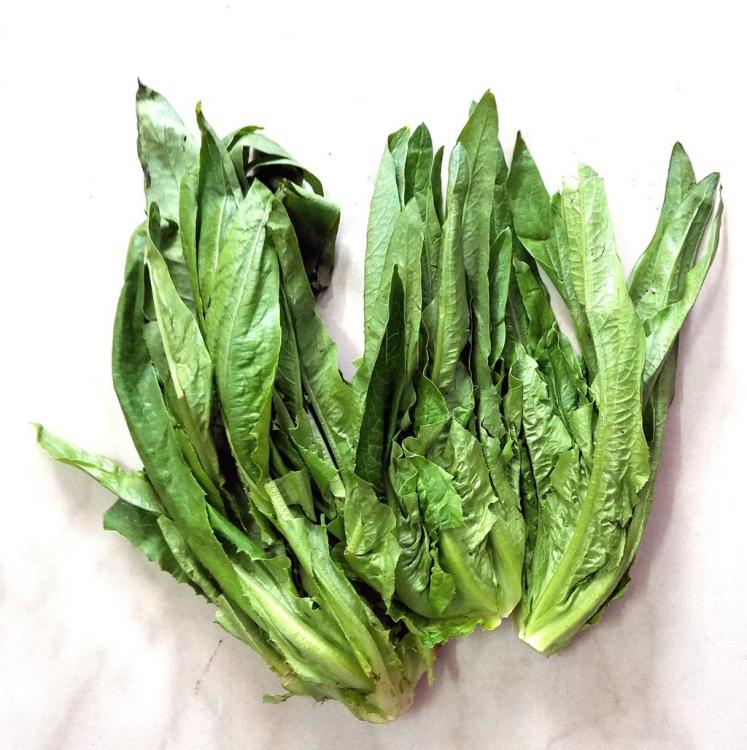I’m an idiot. It’s official.
A couple of weeks back, on another thread, the subject of celtuce and its leafing tops came up (somewhat off-topic). Someone said that the tops are difficult to find in Asian markets and I replied that I also find the tops difficult to find here in China. Nonsense. They are very easy to find. They just go under a completely different name from the stems – something which had slipped my very slippery mind.
So, here on-topic is some celtuce space.
First, for those who don’t know what celtuce is, let me say it is a variety of lettuce which looks nothing like a lettuce. It is very popular in southern mainland China and Taiwan. It is also known in English as stem lettuce, celery lettuce, asparagus lettuce, or Chinese lettuce. In Chinese it is 莴笋 wō sǔn or 莴苣 wō jù, although the latter can simply mean lettuce of any variety.
Lactuca sativa var. asparagina is 'celtuce' for the technically minded.
Those in the picture are about 40 cm (15.7 inches) long and have a maximum diameter of 5 cm (2 inches). The stems are usually peeled, sliced and used in various stir fries, although they can also be braised, roasted etc. The taste is somewhere between lettuce and celery, hence the name. The texture is more like the latter.
The leafing tops are, as I said, sold separately and under a completely different name. They are 油麦菜 yóu mài cài.
These taste similar to Romaine lettuce and can be eaten raw in salads. In Chinese cuisine, they are usually briefly stir fried with garlic until they wilt and served as a green vegetable – sometimes with oyster sauce.
If you can find either the stems or leaves in your Asian market, I strongly recommend giving them a try.





